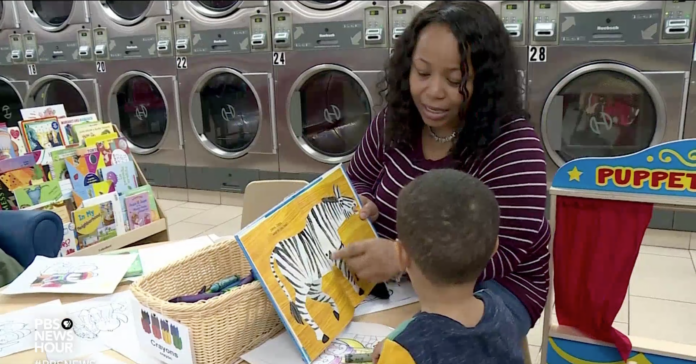By: Şerife TUTAR GÜVEN, Ayşegül İŞLER
Department of Pediatric Nursing Akdeniz University Faculty of Nursing, Antalya
Sep 07, 2015
Doi: 10.5505/phd.2015.64936
SUMMARY
Sexual identity is an individual being aware of his/her sexuality and acting in a manner appropriate to it. With or without intellectual disability, every individual is born with his/her gender. For centuries, it was thought that individuals with intellectual disabilities were inhuman, asexual, or child- ish, or that they were over fond of sex and that they could not control their sexuality. However, these individuals were perceived as such because they did not know where, when and in which situations sexual behav- iors were appropriate. In other words, they could not control their sexual behaviors. Just like healthy individuals, those with intellectual disabilities also have sexual needs and desires. Sex education starts at birth. It continues until reaching adulthood or beyond. Parents are the best guides for all children, either those with intellectual disability or not. The most accurate information about sex, which is an issue when there are conflict- ing messages from different sources, should be first provided by parents. There is no suitable model of sex education for all children with intellec- tual disabilities and information should be appropriate to the child’s level of understanding. Those with intellectual disabilities are more at risk of sexual abuse than others in society and for this reason, it is important to adopt a multidisciplinary team (doctor, nurse, midwife, psychologist and social services specialist e.g.) approach towards the sexual health of the intellectually disabled. The most accurate information sharing about sex depends on good communication between families, schools and indi- viduals, and by receiving professional support when needed. This review emphasizes the importance of sexual education for children with intel- lectual disabilities and the role of nurses in sexual education.
There is no appropriate sexual education model for all children with intellectual disabilities. Individualized edu- cation should be provided that is appropriate to the child’s comprehension level. For example; a child with moderate intellectual disability can require more basic knowledge in comparison to a child with mild intellectual disability. This knowledge can include differences between male and female, types of good and bad touch, how to behave in different social settings.
Sexual education of children with intellectual disabilities should include the following information:
• Developing social skills including general and special terms
• How to develop and maintain different types of friendship
• Coping with problems and rejection in friendships.
• Sexuality and relationships including parenting and marriage
• Preventive behaviors
• Physical and emotional transformations during adolescence
• Sexual biology including reproductive organs
• Appropriate and inappropriate sexual expressions
• Sexually transmitted disease
• Safe sex
• Contraception
• Masturbation etc.
Individuals with intellectual disabilities are at a three times greater risk of sexual abuse than other individuals. The prevalence of sexual abuse of these individuals varies from 25% to 83%, and it is foreseen that more than 90% will experience some form of sexual abuse over the course of their lives.
Because individuals with intellectual disabilities have generally fewer friends and have difficulty making new friends, they have a strong desire to satisfy the friends they have; increasing the possibility for their exploitation. Ado- lescents in particular are more open to exploitation because they value their friends more. In order to maintain their close relationships with their friends, these individuals may not recognize negative behavior by their friends or may tolerate sexual abuse behaviors.
When all factors about sexual abuse are taken into consideration, the fact that children with intellectual disabilities are not provided with education about sexual health and protection from sexual abuse, or they are provided with this education after the abuse is experienced, constitutes the fundamental basis of the problem. Females are at high risk of getting pregnant and both females and males are at high risk of sexually transmitted diseases (HIV, AIDS). Thus, sexual education is an important determinant, positively affecting social and behavioral skills, decision-making skills and knowledge.
Conclusion
Because of misconceptions about the sexuality of individuals with intellectual disabilities, this group is not being provided with sexual education. However, it is known that those with intellectual disabilities are at greater risk of sexual abuse. When these individuals are not informed about sexu- ality, they have difficulty identifying their experiences and perceiving that exploitative behaviors are wrong. In addition to providing this information as a precautionary measure to prevent sexual abuse, remedial interventions are also need- ed. Also, in order to protect these individuals from sexual abuse, nurses, who play a key role in protecting public health, should, in cooperation with other health professionals, enable them to receive sexual education in accordance with their de- velopmental levels.
Reference: https://jag.journalagent.com/phd/pdfs/PHD-64936-REVIEW-TUTAR_GUVEN.pdf
Comment: When considering sex education, children with intellectual disabilities are often ignored even thought they’re a group under great risk. And their voices are hardly heard in the reports. The action should be taken before incidents happen and all groups should be considered in the sex ed.





I think this is definitely something that needs to be addressed in our society. If sex education is lacking for neurotypical children I can imagine it is even more neglected for children with disabilities as well.